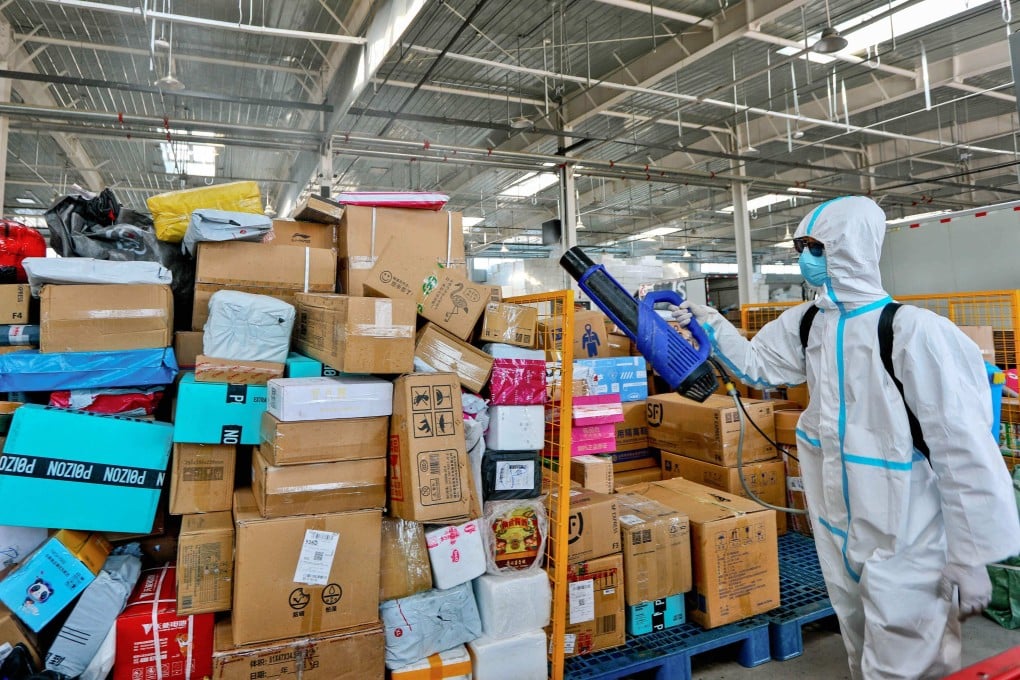Coronavirus: ‘extremely low’ risk of infection from handling mail, Health Canada says
- Canadian authorities respond to Beijing CDC’s claim that a contaminated letter from Toronto could be the source of an Omicron case in the Chinese capital
- They say that in general, ‘coronaviruses including variants do not spread from products or packaging shipped over a period of days or weeks’

The Beijing Centre for Disease Control and Prevention on Monday said traces of the Omicron variant had been found on a letter mailed from Toronto and received by the person, and suggested that the letter could have been the source of the infection.
But Health Canada, in a written reply to the South China Morning Post, said while mail could be contaminated, “the risk of Covid-19 infection when handling paper mail or cardboard packages, including international mail, is extremely low”.
“In general, coronaviruses including variants do not spread from products or packaging shipped over a period of days or weeks,” the health agency said.

It came after Canadian Health Minister Jean-Yves Duclos on Monday sidestepped a question about the claim, saying he had to consult the experts, though he described it as “extraordinary”.